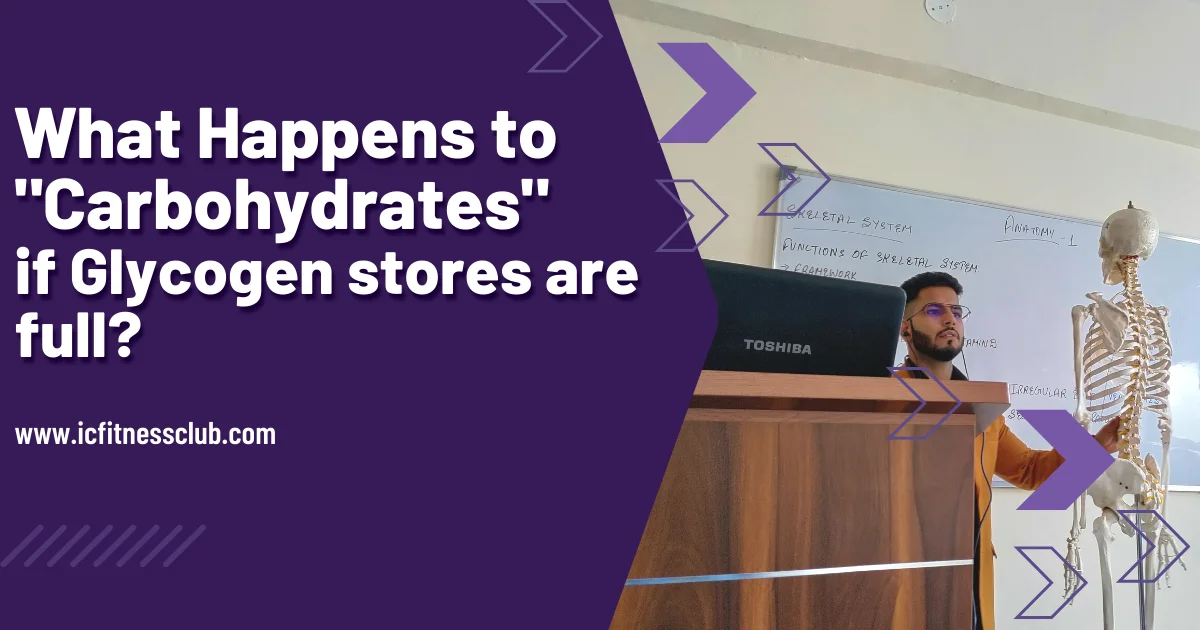What happens to Carbohydrates if Glycogen Stores are Full – IC Fitness Club
If the glycogen stores in the body are already full, any excess glucose that is not immediately required for energy will be converted into fatty acids and stored as triglycerides in adipose tissue. This process is known as lipogenesis.
Alternatively, if the body is in a state of high energy demand, excess glucose may be used to fuel metabolic pathways, such as the pentose phosphate pathway or glycolysis, which can generate ATP, the energy currency of the body. In some cases, excess glucose may also be excreted by the kidneys through urine.
It’s worth noting that the body has complex regulatory mechanisms that help maintain glucose homeostasis and prevent hyperglycemia (high blood glucose levels) or hypoglycemia (low blood glucose levels). These mechanisms involve the hormones insulin and glucagon, which are secreted by the pancreas, and other hormones such as cortisol and epinephrine, which are secreted by the adrenal glands.
Lipogenesis
Lipogenesis is the process by which the body converts excess carbohydrates, particularly glucose, into fatty acids that can be stored as triglycerides in adipose tissue (body fat). This process occurs mainly in the liver and adipose tissue.
When glucose levels are high, insulin is released by the pancreas and triggers lipogenesis by stimulating the uptake of glucose into cells and promoting the conversion of glucose into fatty acids. These fatty acids are then combined with glycerol to form triglycerides, which are stored in adipose tissue for later use as an energy source.
Lipogenesis is an important mechanism for energy storage in the body, but excessive lipogenesis can contribute to the development of obesity and related health conditions.
Blood Sugar Regulation
Blood sugar regulation, also known as glucose homeostasis, refers to the process by which the body maintains a stable level of glucose in the blood. This is important for providing energy to cells and tissues throughout the body, as well as for preventing complications associated with high or low blood glucose levels.
There are two main hormones involved in blood sugar regulation: insulin and glucagon. Insulin is produced by the pancreas when blood glucose levels are high, and it helps to lower blood glucose levels by promoting the uptake of glucose into cells and stimulating glycogen synthesis in the liver and muscle tissue. Glucagon, on the other hand, is produced by the pancreas when blood glucose levels are low, and it helps to raise blood glucose levels by stimulating the breakdown of glycogen into glucose in the liver and the release of glucose into the bloodstream.
Other hormones that play a role in blood sugar regulation include cortisol, epinephrine, and growth hormone. These hormones can increase blood glucose levels by stimulating gluconeogenesis (the production of glucose from non-carbohydrate sources) and glycogenolysis (the breakdown of glycogen into glucose).
To Become a Certified Personal Trainer
To Read IC’s Blogs





